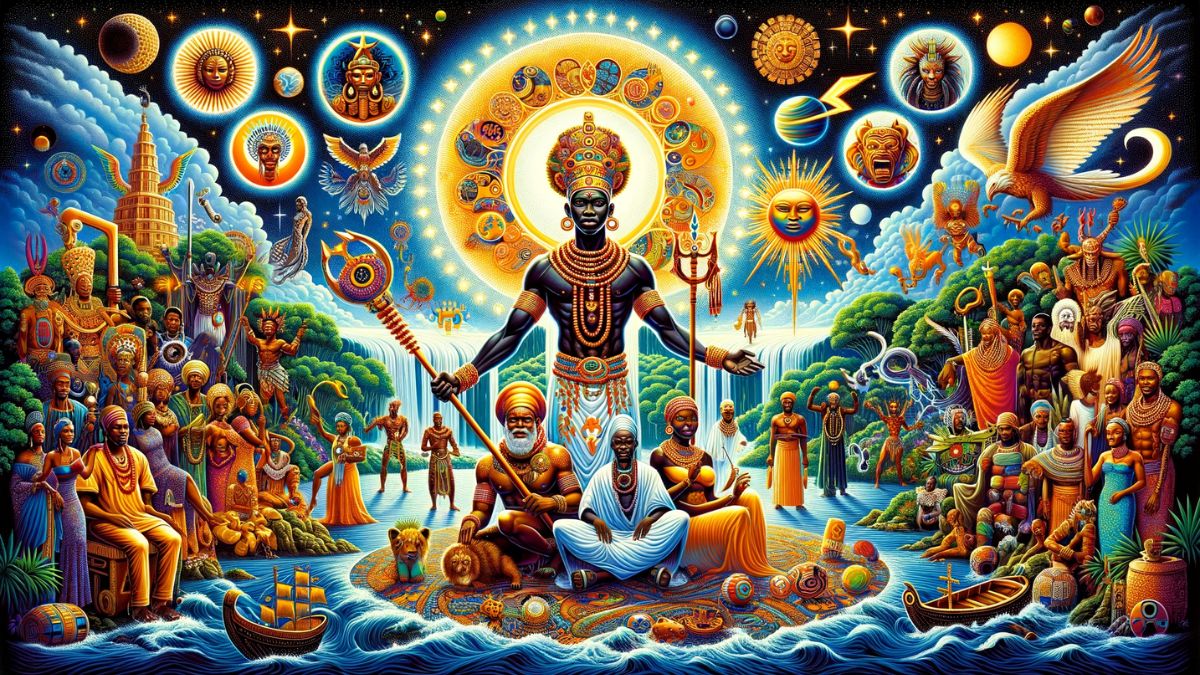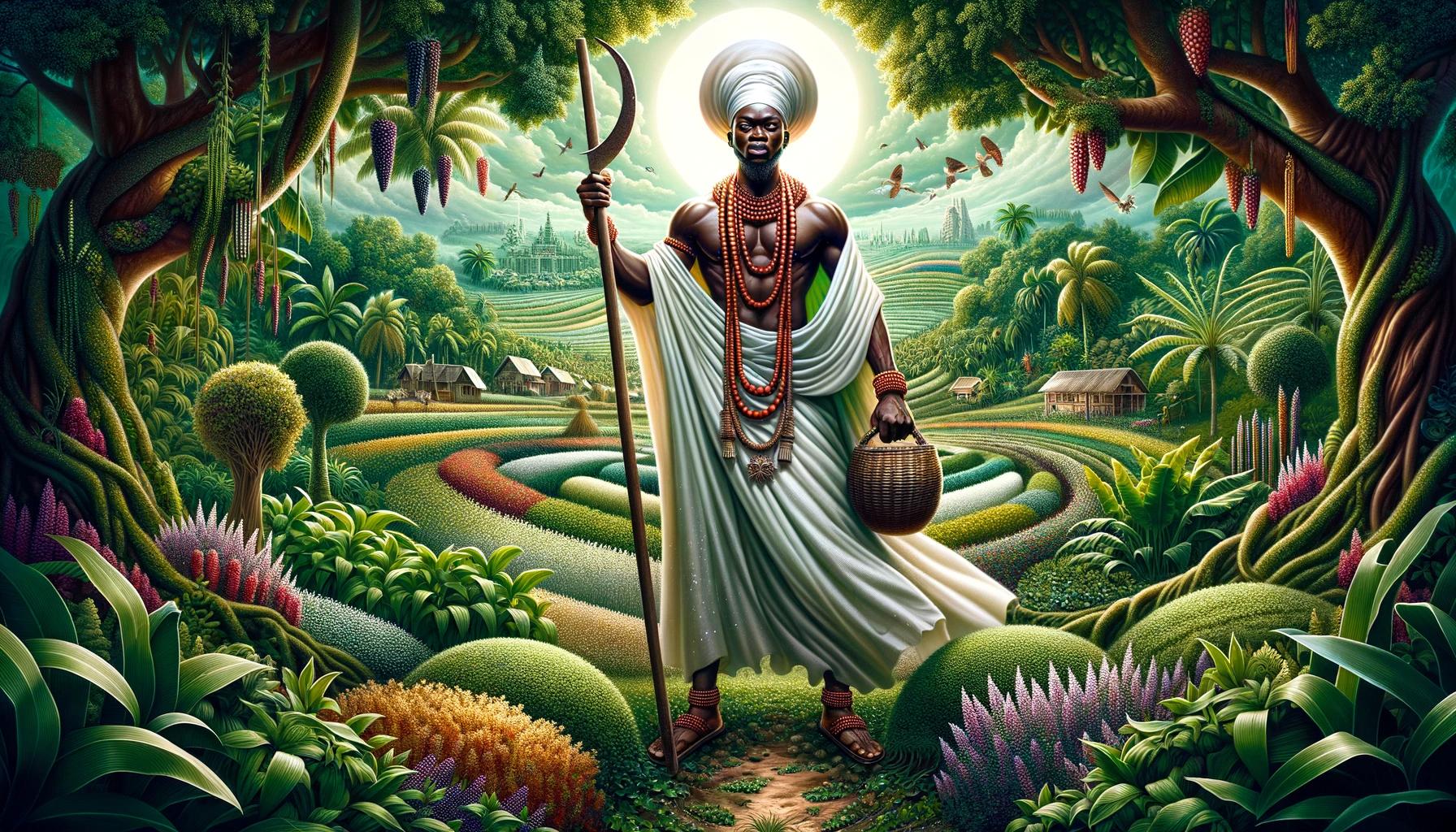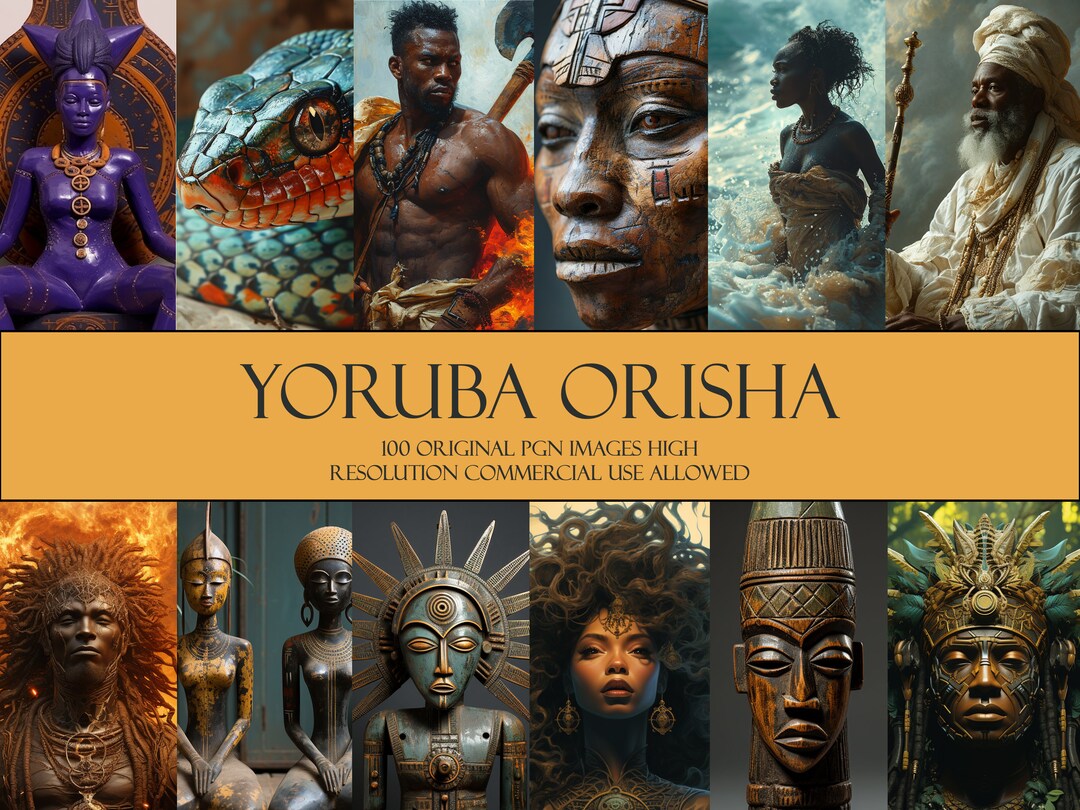Unveiling the Power: A Deep Dive into the Orisha Gods of the Yoruba Pantheon
The Yoruba people of West Africa, primarily from present-day Nigeria, possess a rich and vibrant spiritual tradition steeped in the worship of Orisha. These are deities, often translated as gods and goddesses, who represent various aspects of the natural world, human experience, and the divine. Their stories, rituals, and beliefs have profoundly influenced not only Yoruba culture but also spread across the globe through the transatlantic slave trade, finding new life in religions like Santería, Candomblé, and Voodoo. This article provides a comprehensive overview of the Orisha, their domains, and their significance within the Yoruba spiritual framework.
The Foundation: Understanding the Yoruba Cosmology
Before delving into individual Orisha, it’s crucial to grasp the Yoruba understanding of the cosmos. Yoruba cosmology is complex, but at its core, it describes a hierarchical structure:
- Olodumare (Ọlọ́run): The supreme, all-powerful creator god, often seen as distant and impersonal. Olodumare is the source of all existence and the ultimate authority.
- Orisha: Divine intermediaries, emanating from Olodumare, who interact with humanity. They embody specific aspects of the divine and are the focus of worship and ritual.
- Ancestors (Egungun): Spirits of deceased ancestors, revered for their wisdom and guidance. They can act as intermediaries between the living and the Orisha.
- Humanity (Ènìyàn): The mortal realm, where humans strive to live in accordance with the principles of the Orisha and maintain a harmonious relationship with the divine.
The Orisha are not simply abstract concepts; they are considered to be living beings with distinct personalities, preferences, and areas of influence. They are worshipped through rituals, offerings, divination, and artistic expression, all aimed at maintaining balance and well-being in the world.
Key Orisha and Their Domains
The Yoruba pantheon is vast, with numerous Orisha. Here are some of the most prominent and widely recognized:
- Ọ̀rúnmìlà (Orunmila): The Orisha of wisdom, divination, and destiny. He is considered the prophet and advisor to the other Orisha, and his guidance is sought through the Ifá divination system.
- Ṣàngó (Shango): The Orisha of thunder, lightning, fire, and justice. He is depicted as a powerful warrior king, known for his fiery temper and unwavering authority.
- Yemoja (Yemaya): The Orisha of the ocean, motherhood, and fertility. She is the mother of all the Orisha and is associated with nurturing, compassion, and the cyclical nature of life.
- Ọ̀ṣun (Oshun): The Orisha of love, beauty, fertility, and fresh water. She is often depicted as a beautiful, sensual woman, associated with rivers, honey, and the arts.
- Ọya (Oya): The Orisha of the wind, storms, transformation, and the ancestors. She is a fierce and powerful warrior goddess, connected to the gates of death and the cycle of life and death.
- Ọbatálá (Obatala): The Orisha of creation, purity, and white cloth. He is believed to have been sent by Olodumare to create the earth and human beings. He embodies peace, wisdom, and serenity.
- Eṣù (Eshu): The Orisha of crossroads, communication, and trickery. He is often seen as a messenger between the gods and humanity, and his role is essential for maintaining balance and understanding. He is neither inherently good nor evil, but acts as a catalyst.
The Importance of Ritual and Worship
Worship of the Orisha is a deeply ingrained aspect of Yoruba life. It involves a variety of practices, including:
- Offerings (Ẹbọ): Food, drink, and other items are offered to the Orisha to express gratitude, seek favor, or atone for transgressions. The specific offerings vary depending on the Orisha and the purpose of the offering.
- Divination (Ifá and Others): Systems like Ifá (based on the writings of Ọ̀rúnmìlà) are used to communicate with the Orisha, seek guidance, and understand one’s destiny. Other forms of divination may involve cowrie shells, kola nuts, or other tools.
- Ritual Dances and Music: Music and dance are integral parts of worship, serving to invoke the Orisha, create a sacred space, and facilitate communication.
- Shrines and Temples: Dedicated spaces are often created to honor the Orisha, providing a focal point for worship and ritual.
The Spread and Legacy of the Orisha
The transatlantic slave trade forcibly dispersed the Yoruba people across the Americas, leading to the syncretism of their beliefs with those of other cultures. This resulted in the creation of new religious traditions that incorporated elements of Yoruba spirituality:
- Santería (Cuba): Combines Yoruba beliefs with Catholicism.
- Candomblé (Brazil): A blend of Yoruba, Fon, and Bantu traditions with Catholicism.
- Voodoo (Haiti): Incorporates Yoruba beliefs with elements of Catholicism and West African traditions.
These religions continue to thrive today, demonstrating the enduring power and adaptability of the Orisha tradition. The influence of the Orisha can also be seen in art, literature, and music around the world.
Conclusion: The Enduring Power of the Divine
The Orisha gods of the Yoruba pantheon represent a vibrant and complex spiritual system that continues to inspire and guide people across the globe. They offer a profound understanding of the natural world, human experience, and the relationship between humanity and the divine. From the wisdom of Ọ̀rúnmìlà to the power of Ṣàngó and the nurturing embrace of Yemoja, the Orisha provide a rich tapestry of deities, each with their unique domains and lessons to share. Their legacy lives on, shaping religious practices and cultural expression in numerous communities worldwide.
Frequently Asked Questions (FAQs)
What is the difference between Olodumare and the Orisha? Olodumare is the supreme creator god, the ultimate source of all existence. The Orisha are divine intermediaries who emanate from Olodumare and interact with humanity.
How are the Orisha worshipped? The Orisha are worshipped through rituals, offerings, divination, music, dance, and the construction of shrines and temples.
Are the Orisha considered good or evil? The Orisha are not inherently good or evil. They represent different aspects of the divine and human experience, and their actions can be both beneficial and challenging.
How can I learn more about the Orisha? There are numerous books, websites, and cultural centers dedicated to the study of the Yoruba religion. It’s important to approach this subject with respect and a willingness to learn.
Is it possible to practice the Yoruba religion without being of African descent? Yes, the Yoruba religion and its derivatives are open to anyone who is called to it. Respect for the traditions and proper guidance from experienced practitioners are paramount.




